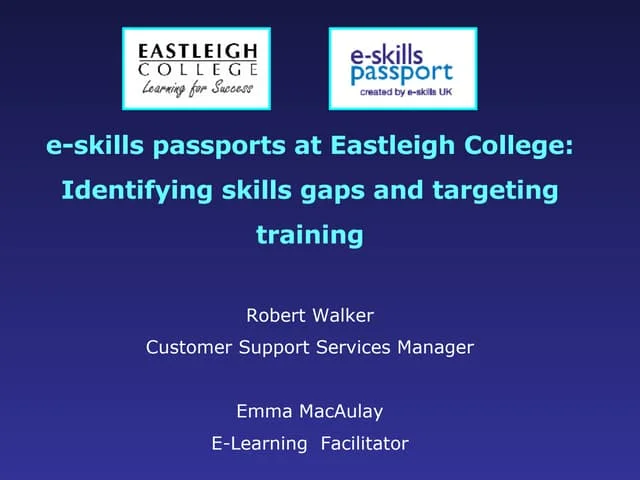In the digital age, technology evolves at lightning speed. New programming languages, frameworks, and tools emerge every year, while businesses demand professionals who can adapt quickly. The first step to staying competitive is understanding your current capabilities. This is where IT and technology skills assessment plays a crucial role. By evaluating your strengths and identifying gaps, you can create a focused plan for growth and professional success.
Why Assessing IT Skills Matters
Many professionals underestimate the importance of skill evaluation, but it can significantly impact career development:
-
Career clarity: Know exactly what skills make you employable today.
-
Certification readiness: Identify whether you’re prepared for formal exams.
-
Efficiency in learning: Avoid wasting time on areas you already master.
-
Employer confidence: Provide verified proof of competence.
-
Future-proofing: Stay relevant as technology trends shift.
Without regular assessments, you risk falling behind in a market where skills quickly become outdated.
Types of IT Skills Assessments
1. Self-Assessment
Self-assessment tools allow professionals to rate their own abilities across various technical and soft skills. While subjective, they’re a great starting point for reflection and planning.
2. Online Skills Tests
Interactive tests measure specific abilities such as coding proficiency, database management, or cybersecurity knowledge. These are often timed and benchmarked against industry standards.
3. Peer and Manager Feedback
Colleagues and supervisors can provide valuable insights into your performance. This type of feedback is particularly useful for evaluating teamwork, problem-solving, and applied technical skills.
4. Practical Project Evaluations
Real-world project reviews or coding challenges demonstrate applied knowledge beyond theoretical understanding. Employers often prefer these as proof of competence.
Best Practices for Effective Skills Assessment
-
Set Clear Objectives
Define why you’re assessing your skills. Is it for a job application, a certification exam, or personal development? -
Use Multiple Methods
Don’t rely on just one type of evaluation. Combine self-assessment, peer reviews, and formal tests for a more accurate picture. -
Benchmark Against Industry Standards
Compare your results to frameworks like CompTIA, Cisco, Microsoft certifications, or ITIL standards to gauge where you stand globally. -
Focus on Both Technical and Soft Skills
Employers value communication, collaboration, and adaptability as much as technical expertise. -
Make It a Regular Habit
Technology changes fast — assess your skills at least once or twice a year to stay current.
Turning Assessment Results Into Action
Once you’ve completed a skills assessment, the next step is implementation:
-
Identify gaps: Highlight the areas where your scores are weakest.
-
Create a development plan: Choose courses, certifications, or projects to improve.
-
Track progress: Reassess periodically to measure growth.
-
Showcase results: Update your resume, LinkedIn, or skills passport with verified skills.
Conclusion
Assessing your IT and technology skills isn’t just about passing tests — it’s about building a foundation for long-term career success. By following best practices like setting clear goals, using multiple assessment methods, and translating results into action, you can ensure that your skills remain sharp, relevant, and in demand.
The tech world rewards those who are proactive. Regular skill assessments give you the insights you need to stay competitive and future-ready.

